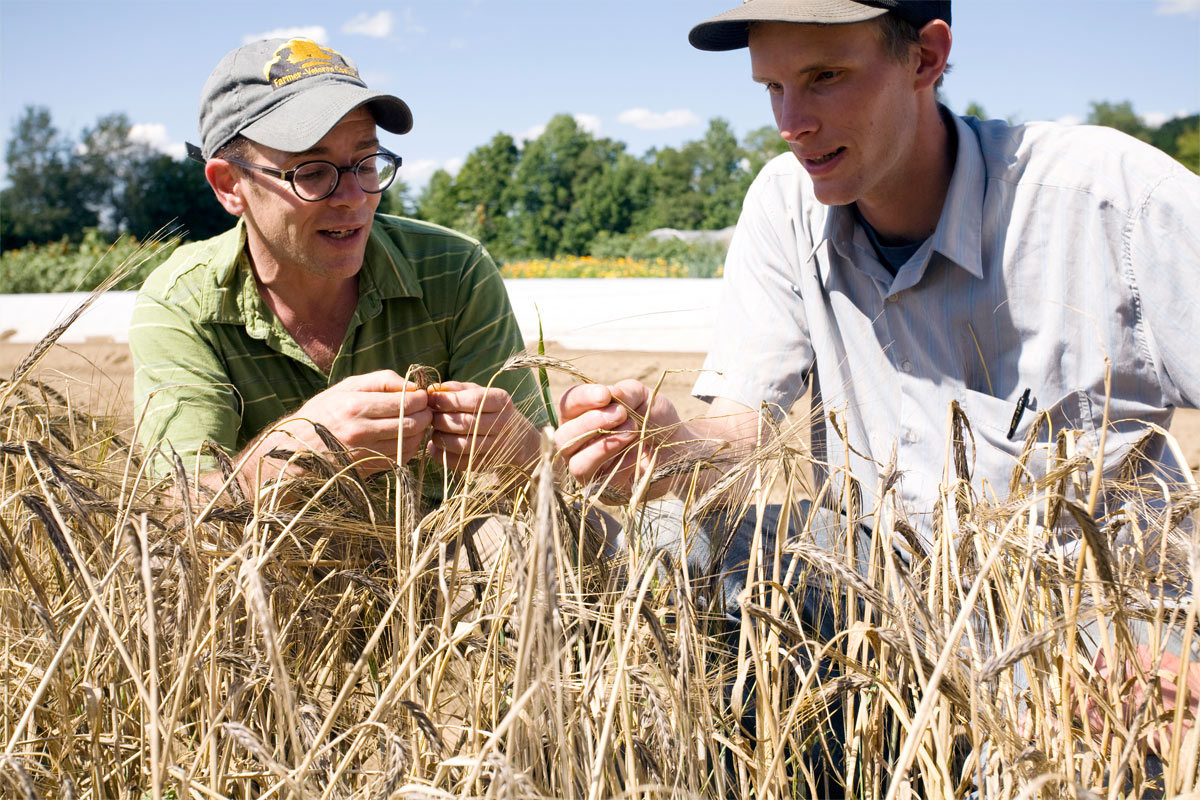When it comes to supporting the growth of organic food and farming, Clif Bar is among the leaders. The Emeryville, California manufacturer of organic food bars and drinks has several strategies to growing organics including policy initiatives, research funding for new plant varieties, farmer education and assistance, and industry collaboration to increase organic acreage.
Funding research on new organic crop varieties
Organic research has been a particularly strong focus at Clif Bar. The company spearheaded a $10 million investment to fund five endowed chairs focused on organic agricultural research. Last year, Clif Bar and Organic Valley named the University of Wisconsin-Madison as the recipient of the nation’s first endowed chair focused on plant breeding for organic crops. The endowment will fund research to develop crop varieties adapted to organic systems.
“Clif Bar’s goal to raise an estimated $10 million for five endowments is putting a deep stake in the ground on organic research and making the claim that it is here to stay for generations to come,” said Matthew Dillon, Clif Bar’s director of agricultural policy & programs.
Seed Matters, an initiative of the Clif Bar Family Foundation, has also awarded $1.45 million to 14 graduate students for organic crop breeding fellowships.
Helping to transition more acres to organic
Getting more farmers to transition to organic is also a priority at Clif Bar because organic ingredients make up 73% of the company’s products. “We use about 140 different organic ingredients that come from around 60 crop types. It’s a very complicated supply chain,” Dillon says.
One of Clif Bar’s main organic ingredients is figs, and the company is one of the world’s biggest buyers of organic figs. A few years ago, demand for organic figs exceeded the supply. Clif Bar had been buying organic figs from California but a supply shortage forced the company to source figs from Turkey. Unfortunately, there were quality issues with the Turkish figs.
To address the supply problem, Clif Bar proposed a seven-year contract to encourage its main California fig supplier, San Joaquin Figs, Inc. to transition 300 more acres to organic. Clif Bar agreed to buy the company’s certified organic figs for seven years following the three-year transition to organic.
Dillon says San Juaquin Figs was thrilled with the proposal. “They did the math, and in first four years after going organic, they would make up all transition costs,” he says.
Dillon cites this as an example of how larger organic companies, which are sometimes criticized as “Big Organic,” can make a positive difference to increase organic farming acres in the U.S.
“Companies of our size can do these types of contracts and give farmers opportunities to transition to organic,” he says. “But it can be difficult for small or new organic companies to make such long-term commitments.”
“Farmers are the root of our success”
In addition to supporting organic transition, Clif Bar also supports farmer education and extension. “Farmers are the root of our success,” Dillon says. “If we want more, we have to address all the challenges they face.”
Clif Bar is in the early stages of launching a community agricultural supply fund. “How can we invest money to improve the rural communities and improve the lives of organic farmers?” Dillon asks.
Clif Bar is also a member of the U.S. Organic Grain Collaboration, working with other organic companies to increase the supply of organic crops in the U.S. “We think the (collaboration) is important,” Dillon says. “There’s a place for competition, but it’s also important to put competition aside and focus on collaboration. We should work in a collaborative way to help farmers get off the pesticide treadmill.”
Sourcing organic ingredients can have a big impact in reducing that pesticide treadmill. Clif Bar started sourcing organic oats and soy in 2003, which added 30,000 more acres of organic production. “With just those two crops we helped remove more than 5 million pounds of pesticides from the land,” Dillon says.
That is one of the key benefits of organic food and why Clif Bar has such a strong commitment to its growth.
“While it’s important to recognize that organic food is good for consumers, we also want to encourage folks to think that organic is good for farmers and farm workers, and to think about the broader public good of removing chemicals from our rural communities,” Dillon says.
© Copyright The Organic & Non-GMO Report, April 2016









